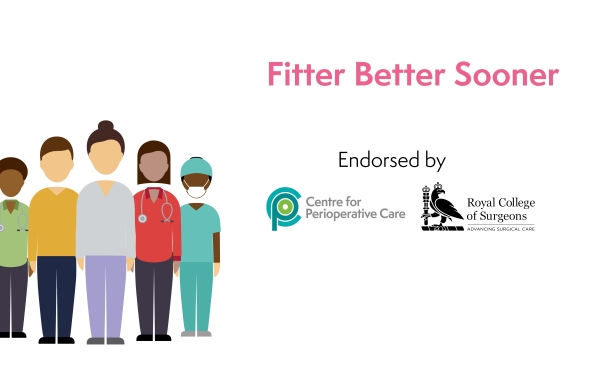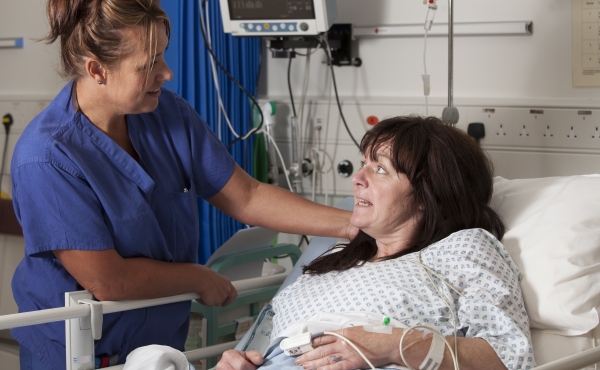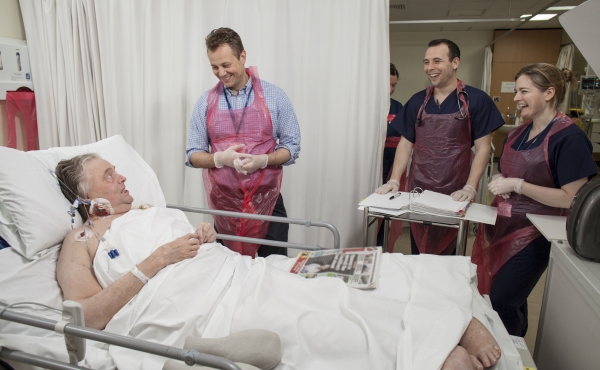Looking after your body and mind before an operation
The following story was published by the Press Association on 26 February 2020 and featured in The Irish Examiner and Talk Talk News.
Thousands of people will be waiting for surgery of some sort right now – yet preparing for it isn’t something we talk about much.
I don’t mean the core basics, like remembering the ‘nil by mouth’ rule before your general anaesthetic, and wriggling into compression stockings. I’m talking about getting operation-fit on a wider level.
After all, we wouldn’t dream of running a marathon without putting considerable thought into our training and recovery regimes, so why not take a similar approach when we’ve got a major health event like surgery on the cards?
Of course, a team of professionals will take the lead for the main event. But beyond the operating table, you’re in charge – and taking a proactive approach can be immensely beneficial.
How can you help yourself?
“People get a lot of benefit from feeling they’re contributing [to their health] and not just being passive, and there’s evidence it gets them out of hospital quicker,” says Mrs Scarlett McNally, consultant orthopaedic surgeon and Royal College of Surgeons (RCS) Council member.
McNally also works with the Centre for Perioperative Care (CPOC), which is dedicated to improving perioperative care (the medical term for pre- and post-surgery care). It’s very important, she stresses, and has a significant impact on patient outcomes. “For example, if people stop smoking for four weeks before surgery, it reduces the complications of the operation by 19%. That’s a significant number,” says McNally.
Psychological wellbeing is important too. Dr Meg Arroll, a psychologist and author at Ten Harley Street (drmegarroll.com) says there’s been a number of studies looking at the impact of stress on healing. “We know chronic stress leads to significantly longer healing periods, so there is a profound physical benefit of taking care of our emotional and psychological health before and after surgery,” says Arroll.
CPOC is producing a series of patient resources which you can find online, but there’s a lot to be said about thinking beyond the basics and considering what’s going to work best for you as an individual too.
Body and mind
Surgery isn’t just a physical ordeal – it’s a mental one too. This can include coming to terms with a diagnosis, anxiety about the procedure, and coping with the recovery phase. It’s normal to experience these things, and acknowledging them can be immensely beneficial, as it puts you in the driver’s seat for managing them. “Of course it’s an anxiety-provoking time, and planning around that is very important,” says Arroll.
McNally agrees physical health and emotional wellbeing go hand in hand when preparing for surgery. “There are several aspects to that,” she says. “But for the patient themselves, there are some physical things and some mental things they can really work on.”
If you’re experiencing heightened anxiety, there’s lots you can do to help yourself. “Certainly don’t berate yourself for feeling that level of anxiety,” says Arroll, who suggests allowing yourself to say “this is a difficult thing to go through”, and “treating yourself with a huge amount of compassion whilst working through those thoughts. Even being aware of those thoughts is helpful.”
If you’re worried about things going wrong, CBT-based exercises can help. “One way to deal with that, in terms of CBT,” she continues, “is to look at the evidence which you’ll have from your surgeon, as you’ll have to sign a consent form outlining the risks of the procedure. So, try to look at that as objectively as you can.” This can help keep your thoughts focused on real probabilities, rather than spiralling or catastrophising.
Talking to other people who’ve been through similar procedures can be helpful too – but Arroll notes it’s important to seek positive stories, not just the negative ones (people are often more likely to share negative experiences than positives ones, especially on the internet).
“Relaxation exercises are also brilliant,” adds Arroll. “And some people find hypnotherapy very beneficial.” A few minutes of mindfulness meditation, breathing exercises and yoga – there’s so much you can try. Maybe treat yourself to a massage – whatever works for you.
Keep moving
How active you can be depends on your individual health, and it’s crucial to listen to your own body and doctor here. But generally, having surgery doesn’t mean we should be holed up indoors and only thinking about bed rest.
“I’ve done a lot of work around exercise, encouraging people to just get up and go for a walk every day and move around, then their hearts and lungs are better to get them through the operation,” says McNally. “That’s a really important thing for people to do – and it’s also important for their own wellbeing. Getting outside for a walk gets your heart rate up, you’ll get endorphins from the exercise and boost serotonin in your brain, so you feel better, you feel more in control. You’re trying to do something to feel better.”
The same applies during recovery. Your surgeon and physiotherapist will advise on activities you need to avoid, or exercises to help build strength back up – and it helps to focus on what you can do, rather than what you can’t.
“You may not be able to go to the gym, but research suitable, safe activities, you can do – there are so many YouTube videos of things like exercises and stretches you can do in your chair, for example,” says Arroll. “Make sure you’re safe, have a chat with your surgeon. It depends on your procedure, but [a lot of the time] they want you to be active, as that promotes healing and recovery, but in a safe way.”
Get ready for recovery
Nutrition is fundamental for optimal health, and even more important when our bodies are healing, which takes up a lot more energy. As well as ensuring you’re eating well before the surgery, think about what you’ll be eating during the recovery phase. You may not be able to get out to the shops or lift pots and pans for a while – so plan ahead. “You might want to have some healthy microwave meals available for example, so you aren’t going to struggle,” says McNally.
It’s all about making things as easy and comfortable for yourself when you leave hospital. “You might want to have your fluffy socks handy, that you can get on easily when you can’t really bend down, for example,” says McNally. “Or your nice fluffy blanket for when you do want to rest, so you don’t have to rummage.”
Psychologically, lots of people find recovery tougher than waiting for surgery. You might be a lot more isolated than usual, which along with not being as mobile and active as usual, can be a shock to the system. “Don’t be afraid to reach out and tell people what you need,” says Arroll. “Even if it’s just asking a friend to send you a daily text.
“And have things ready to occupy your mind. You’re not going to feel like it all the time, but maybe there’s a book you want to read but never had the time, or boxsets you really want to see – now’s your chance,” Arroll adds. “Don’t feel guilty, give yourself full permission to do that.”




